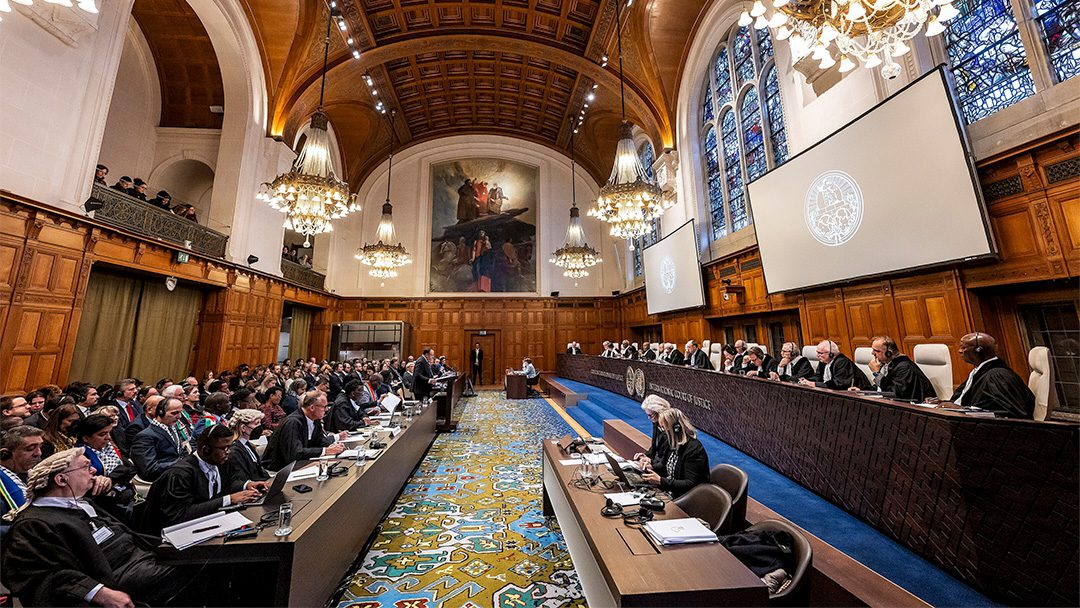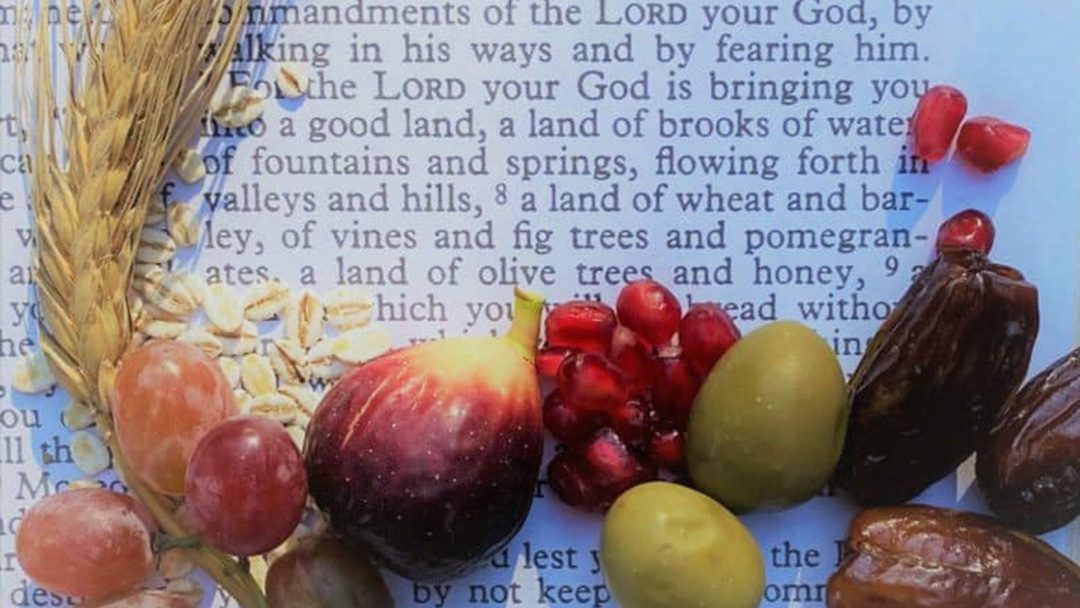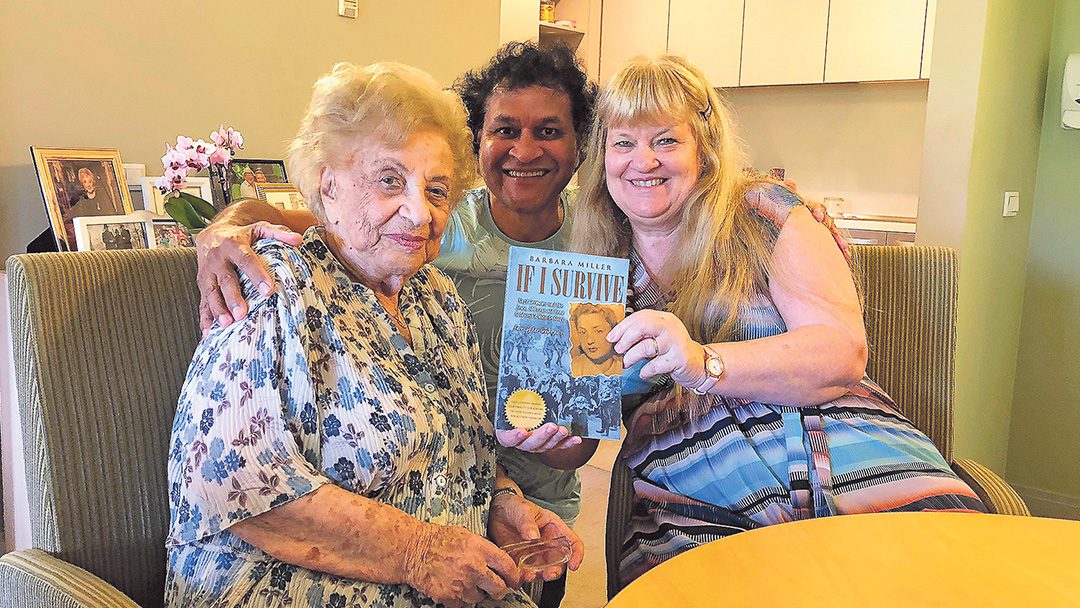We have seen already that the Feast of Tabernacles is marked by a real spirit of joy, celebration and thanksgiving. In ancient times, it was by far the most festive of “the Lord’s appointed feasts”. This feast celebrates the gathering of the harvest—but not the earlier harvest of the wheat or barley that is used to make the bread that sustains life.
No, this is the later time of the year when grapes for wine and eating are picked, and olives, pomegranates and figs are harvested. It is also called the Feast of the Ingathering, a time to rejoice in God’s provision of those sweet fruits to be gathered for the Israelites to enjoy throughout the year.
We have also seen that it is very much a time of remembrance, as the Jews recall with gratitude to the Lord His presence and His faithfulness in protecting and providing for His people during their desert wanderings. During the seven days of the feast the family members live in a sukkah, a temporary little hut or shelter with a roof covering of leaves, sticks and branches.
The intentionally flimsy nature of the sukkah is a powerful reminder to the Jews, and to all of us, that life on earth is a temporary journey, a journey of faith and trust in the living God. Earlier we have focused on the sukkah as a symbol of our own human frailty and weakness. Now we look at this matter of our being “aliens and strangers on earth” (Hebrews 11:13).
The sukkah is not a permanent home—not at all! Nor is this earth our true home—we are just “passing through”. All through Genesis we read of the patriarchs—Noah, Abraham, Isaac, Jacob—dwelling in tents. There may well be a spiritual significance in that, for in Hebrews 11:8-16 we read:
“By faith Abraham, when called to go to a place he would later receive as his inheritance, obeyed and went, even though he did not know where he was going. By faith he made his home in the promised land like a stranger in a foreign country; he lived in tents, as did Isaac and Jacob, who were heirs with him of the same promise. For he was looking forward to the city with foundations, whose architect and builder is God…
“All these people were still living by faith when they died. They did not receive the things promised; they only saw them and welcomed them from a distance. And they admitted that they were aliens and strangers on earth. People who say such things show that they are looking for a country of their own… They were longing for a better country—a heavenly one. Therefore God is not ashamed to be called their God, for He has prepared a city for them.”
They were aliens and strangers on earth longing for a better country. In similar fashion, for 40 years God led the Israelites in the wilderness desert where they had no permanent homes. They were on their way to the Promised Land—they were heirs to the land, but had not yet reached it, and their temporary dwellings were a picture of that.
Peter makes this same point, namely that as Christians we are pilgrims in this world: “Peter, an apostle of Jesus Christ, to God’s elect, strangers in the world, scattered throughout Pontus, Galatia, Cappadocia, Asia and Bithynia….. Dear friends, I urge you, as aliens and strangers in the world, to abstain from sinful desires, which war against your soul…” (1 Peter 1:1, 2:11).
Jesus makes the same point too when in His beautiful prayer to His Father recorded in John 17 He says about His disciples: “I have given them Your Word and the world has hated them, for they are not of the world any more than I am of the world.”
However, as we all well know, the constant assaults of the advertising media in our consumer-oriented world, coupled with our natural human desire for possessions, combine to hold many of God’s people in the grip of materialism.
We are continually confronted with the danger of living and acting as though we are here to stay for good. Some of us may invest huge sums of our money in property and possessions, and before we know it we are struggling to repay debt to banks and big business.
We can even be so deeply rooted in the ways and pattern of this world that we live in mortal fear that we could lose everything—which of course we could! Sadly some here in Australia—and many others worldwide—have experienced significant loss due to various natural disasters, and the current COVID-19 pandemic has radically impacted the lifestyles of literally billions of people.
The Jew has opportunity to gain a proper, Biblical perspective on life as he enjoys eating meals—and maybe even lives and sleeps—for the seven days of Tabernacles in his temporary booth. He learns afresh that he is called to trust in Jehovah Jireh, the God who provides, and to hold on as lightly as he can to the material things with which he has been blessed.
After all, it is the Lord who gives and the Lord who takes away. Freely you have received, and freely you are to give (something else I have touched upon earlier). This really is the pathway to joy! There truly is a joy, a deep sense of freedom, that accompanies the capacity to hold all things loosely, and also to give them away.
I remember conducting a memorial and celebration service for an 80-year-old lady who quite unexpectedly went to be with the Lord. The moment I was given the news of her death on the phone I sensed very strongly the Lord saying to me, “She’s Mine!” The clarity of the phrase really impacted me.
Our problem is that we live in a world, and if not careful are dominated by a world system, controlled by the enemy of our souls. And the Lord says to us, “Don’t listen to the devil! Remember, you’re Mine! All that you need for your faith journey in this world I have provided already! Be anxious for nothing.”
The call to us all is to be like Paul and learn contentment, something that is desperately hard in our obscenely materialistic age. In Philippians 4:11-12 Paul wrote: “I have learned to be content whatever the circumstances. I know what it is to be in need, and I know what it is to have plenty. I have learned the secret of being content in any and every situation, whether well fed or hungry, whether living in plenty or in want.”
It is worth noting that Philippians is full of references to Paul’s joy. Here is a mighty servant of the Lord whose whole life as a believer is an extraordinary faith journey, full of difficulties, trials, persecution, hostility—you name it—and yet he constantly rejoices and urges the Philippian believers to rejoice.
How can this be? Because the world had no hold on him. Only the Gospel and the things of eternity had any real significance for him. He could even rejoice in prison because his imprisonment enabled him to share the Gospel with his captors.
True joy, for us as for Paul, is in the journey of faith. It can never be in things which by their very nature tend to control, enslave and even manipulate us. They become idols. So in his Tabernacles sukkah the Jew thinks deeply on the fact that he is only passing through this world.
I am reminded of my years of Christian service in Papua New Guinea. I will never forget one morning entering a small grass hut in the highlands and being greeted by two of the most shining, joy-filled brown eyes I have ever seen. They belonged to a young woman who had recently come to faith in Jesus.
By our standards she lived in real poverty. Her workday started at sunup and did not end till sunset. Her possessions were meagre. But as I talked with her it was clear that “the eyes had it”! They never stopped shining. The joy in her eyes reflected her new faith journey and her contentment in the Lord.
1 Timothy 6:6-8 might have been written for her! “But godliness with contentment is great gain. For we brought nothing into the world, and we can take nothing out of it. But if we have food and clothing, we will be content with that.”
Paul understood where his true citizenship lay. In Philippians 3:20, he wrote: “But our citizenship is in heaven. And we eagerly await a Saviour from there, the Lord Jesus Christ.” When you next celebrate the Feast of Tabernacles, will you with me reaffirm your true citizenship, and let the joy of the festival reflect your journey of faith?












0 Comments